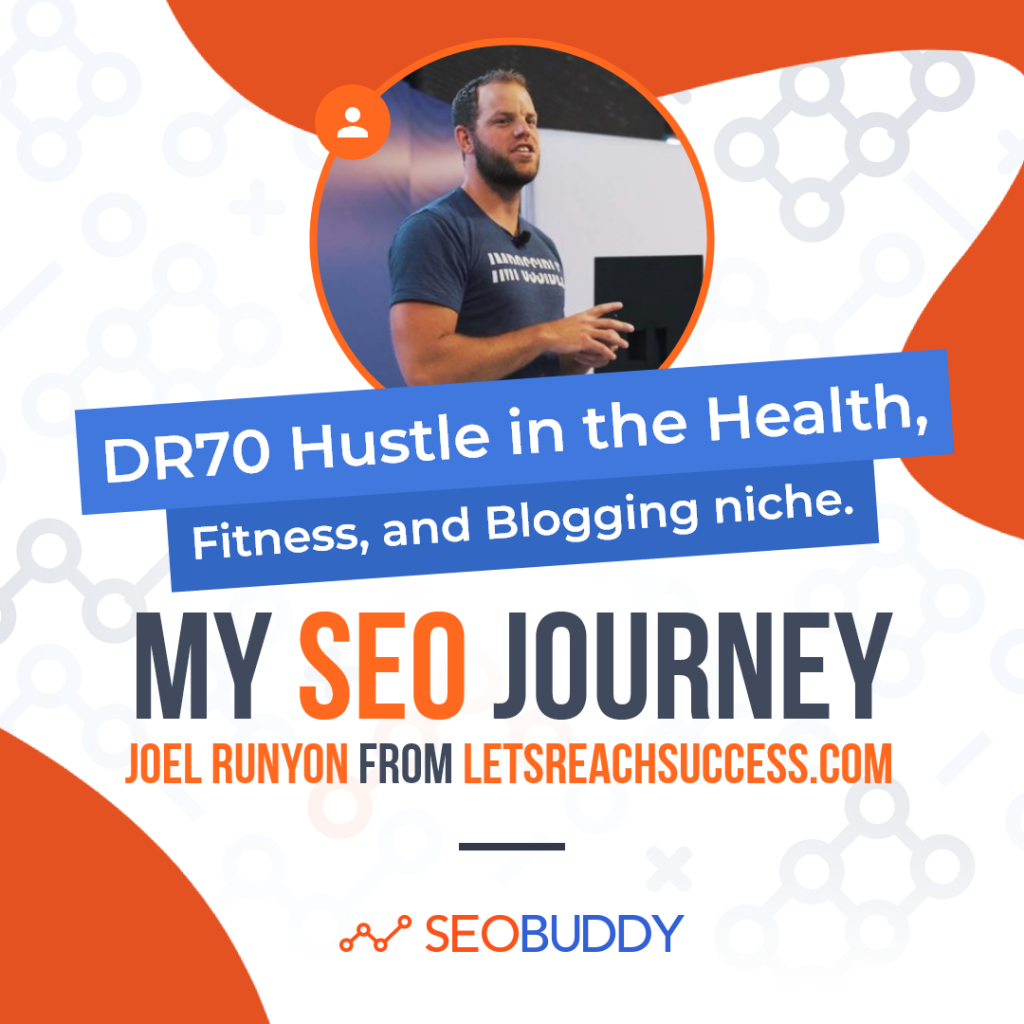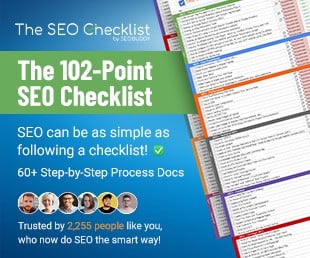My SEO Journey: Joel Runyon from impossiblehq.com – Doing the IMPOSSIBLE and building a DR70 Hustle in the Health, fitness, and blogging niche
My SEO Journey is a new series where entrepreneurs and Indie makers will share their honest SEO Journey filled with failure and success, and most importantly proven results. Episode #20 features Joel Runyon from IMPOSSIBLE.

My name is Joel Runyon and I’m the founder of IMPOSSIBLE – a performance lifestyle brand as well as several sister businesses that have incubated within and spun out of IMPOSSIBLE including a mobility exercise app, a meal planning SaaS app, and a free blogging setup guide.
Impossible’s mission statement is to help people push their limits and do something impossible.
We inspire people to push themselves and transform their bodies + minds through physical challenges while equipping them with tools & training to perform better, gear to keep them comfortable while doing the uncomfortable and supplements to help them perform at their best.
What’s your backstory, how did you come up with the idea?
IMPOSSIBLE started as a personal blog – focused on me trying to live a better story with my life and getting out of my parents basement. I found endurance sports and health and nutrition.
My first product that ever made money was IMPOSSIBLE Abs – a fat loss guide – centered around paleo and intermittent fasting.
The mere mention of paleo became a spark of interest. I built a one page guide to paleo and it quickly took off. It turned into a completely different revenue stream and eventually we spun it out into it’s own new business.
That incubated several paleo mobile apps (paleo.io and paleorecipe.io) and eventually a paleo online meal planner.
MoveWell started after I injured myself on an international ultra marathon project and wanted a training coach to tell me what physical therapy routines I should do to rehab myself at home – not just tell me to “stretch” more.
Lastly, I wrote a guide to starting a blog on Impossible and it eventually spun out into startablog.com – it’s own site and service.
Since launch, what has worked to attract more organic traffic?

In the beginning – keywords weren’t really a focus for us.
I tried to write interesting things first – and then rank for keywords second (or honestly, not at all at first).
For example – “cold shower therapy” wasn’t even a term until we created the concept – there were things like “cold shower benefits, etc” – but our “CST” post was the market maker for a long time.
Other things like our blogging guide and our paleo guide – we wrote first to be helpful. When we realized there was a lot of ambient interest in them, that’s when we dove into Ahrefs, started digging
Google has shifted a lot since day 1 and I think one thing we would shift is to focus more on “content hubs” or “silos” to stack content & keywords within. At first, Google didn’t really care too much about that, but it’s become a bigger thing.
For our new sites – that’s not a problem.
For our older sites, it’s taken a decent amount of work to reorganize them into sections that Google now appreciates better.
One mistake we did make as we grew ultimatepaleoguide.com – we actually began to overwrite content and focus less on links. This was a mistake as we have a ton of content on that site, but focused probably 80% on writing and 20% on marketing it. We should have spent at least as much time promoting the content as we did building it.
Now, as we’re building up ultimatemealplans.com – we’re being more strategic with what content we’re writing and what the purpose of it is designed for. With our eCommerce stuff like impossible.co – we’re finding lots of brand new areas + opportunities that I can’t quite share yet (check back in a year), but they’re extremely promising as we shift that site into scaling our physical products.
Recently – we have shifted to building site authority and link acquisitions. It’s been helpful in bolstering content that has historically ranked but has been surpassed by bigger “conglomerate” sites.
I have found doing personal interviews myself to be more helpful than even traditional link building.
IMPOSSIBLE Is a strong brand and there’s a great story behind it – so that makes it easy to share with people. The impossible list is a viral concept that people love to share. They build their own, actionable impossible lists and take on various challenges.
For example, starting in 2012, we began hosting a cold shower therapy challenge, and it was a hit even before the latest surge of interest in cold water + ice bath therapy that came from the Wim Hof documentary that later came along (2015 on Vice, 2020 on Netflix).
Ahrefs has us getting 150 historical links on that one alone.
Have you learned anything particularly helpful or advantageous in your SEO Journey?
For better or worse, I’ve picked niches that are notoriously difficult. Health, fitness, and blogging.
This means that it’s tougher to compete and takes a lot longer, but the rewards are also better. If you’re just starting out – I think most people can find easier niches to get their starts in. They’re easier to rank and less volatile long term – if you can do it – I would recommend it.
Also – for a while on our paleo site – we began to focus too much on content.
On that site alone, we have 1,000+ pieces including recipes, research articles, and even sections on keto or gluten-free diets. We probably built out too much content for the scope of that site.
We also had too many sites.
For a while, super-niched sites worked really well, but then it just honestly became more work than they were worth. We began to consolidate them and focus on our main “hero” sites.
Around that time, they also hit a bunch of what they would consider “alternative health” sites.
Although ‘eating real food’ doesn’t sound too crazy of a health idea – we got swept up in that and had to revamp our plan from the get-go.
Finally, I’ve found SAAS businesses are much more sustainable to run than just constantly building out content farms. I think it’s definitely doable, but I find SaaS web apps can be more consistently profitable than just churning out content and trying to maximize RPM.
What’s your SEO Tech Stack?
I made the switch from YoastSEO to SEOPress last year on our WordPress sites and haven’t looked back.
At this point, there’s feature parity and the SEOPress price point makes way more sense when you’re running multiple sites – especially considering that it didn’t feel like Yoast was adding a ton of value in recent years.
We are actually removing more and more plugins to make the site faster.
One of the biggest issues we’ve had is that the tech has changed so much from when we started to where we’re at now that we’ve had an issue adding plugins that do duplicate uses. We’re working on streamlining everything and scaling back what we use – but it’s taken a nontrivial amount of work.
In addition – we run most of our sites through Cloudflare,
and use ahrefs.com to track positions and progress over time.
Other than that – we keep things pretty simple!

Now it’s time to discover the other 102 steps that will get more organic traffic flowing to your website. Get the SEO Checklist here.
Want to get a sneak peek of what it looks like?
Enter your email and get a free demo version of the SEO Checklist.
What’s your go-to resource for SEO tip?
The most influential teacher has been 10 years of getting banged around by Google! Over time, it becomes a bit of a dance where you balance strategy, instinct and a ton of historical knowledge of the space. I think most SEO-focused people can relate to that in some way.
I keep up to date on Google updates, and I like the Detailed blog, but I find most books are definitely out of date SEO-wise by the time they’re published.
You can visit IMPOSSIBLE, get your own impossible shirt, and start your own impossible list.


